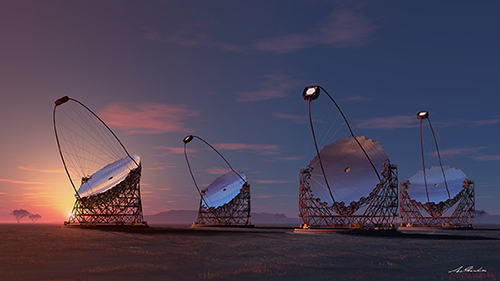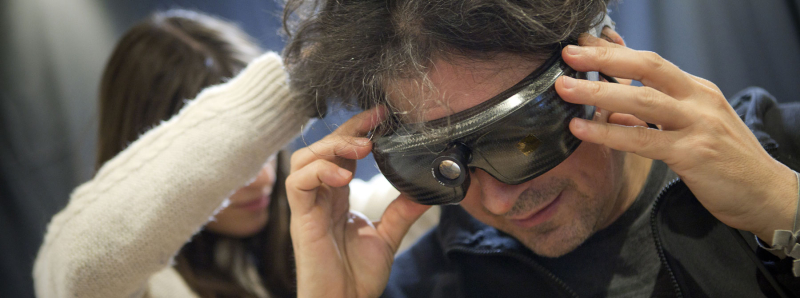Presentation of the Institute
IN2P3 was created more than 50 years ago to coordinate French research in nuclear and particle physics and is today a leading international organisation in these disciplines. It takes part in the most important and largest-scale experiments currently in progress or under development throughout the world.
Through their research, the physicists of IN2P3 aim at finding answers to three fundamental questions. What are the fundamental constituents of the subatomic world and the forces governing them? How is nuclear matter structured? What is the Universe made of and how is it evolving?
International research with major large-scale instruments
These researches require the construction and implementation of very large research instruments such as particle or atomic nuclei accelerators and particle detectors placed on high-energy accelerators or located in underground laboratories. They also require researchers to design and construct gigantic instruments to observe high-energy cosmic rays from the ground, from space or from the seabed and large-scale matrices of ultra-sensitive sensors to observe the universe.

These experimental facilities require significant resources and are generally part of transnational projects with a European or international dimension. In this framework, IN2P3 represents France in European or international advisory or coordination committees and bodies such as APPEC and APIF for astroparticles, ECFA, FALC and ICFA for future accelerators, EGI and EU-T0 for computing and data, NuPPEC for nuclear physics.
To make the best use of its resources and skills, the Institute has structured itself into a limited number of laboratories, infrastructures and research platforms located mostly at the heart of major French university campus. IN2P3 also works in close cooperation with other CNRS institutes, as well as with other French research organisations such as the Alternative Energies and Atomic Energy Commission (CEA), the Institute for Radiological Protection and Nuclear Safety (IRSN), the National Institute for Health and Medical Research (INSERM) and the National Centre for Space Studies (CNES). Its activities are focused on major and very large national and international research infrastructures and often involve running large projects in collaboration with research organisations, institutes and universities in many other countries.
A unique expertise at the service of society and all fields of science
IN2P3 carries out interdisciplinary research into ionising radiation mainly in the fields of health, energy and the environment. This work includes designing new instruments for medical diagnosis and therapy, the studying of radioactive waste in the environment and research on innovative nuclear energy production methods.

The Institute's specific scientific and instrumentation expertise is shared with other scientific fields such as astrophysics, chemistry, materials and laser physics and life sciences. This know-how is also the subject of technology transfer to companies. IN2P3 is recognised in the industrial world for its skills in the development of accelerator components, sensors and electronics and also for its in-depth knowledge of computer processing of large masses of data.
A strong commitment to formation, training and outreach
Building bridges between its research and the public –especially young people – is essential to IN2P3. The Institute is largely involved in training future scientists. It contributes to teaching in universities and engineering schools and hosts many interns and doctoral students in its laboratories. In the area of sharing and dissemination of knowledge, the Institute's staff organises multiple scientific mediation activities to help introduce a wide public to the major scientific themes and professions that will make up the world of tomorrow.

IN2P3 in numbers
- 1000 researchers including 600 CNRS permanent staff and 400 university professors
- 1500 other permanent staff including 600 research engineers
- 700 contractual researchers including 400 doctoral students
- 25 research laboratories and national platforms
- 10 large research infrastructures
- 50 large international collaborative research projects
- 15 international research agreements
- 10 interdisciplinary platforms
- 15 currently active start-up companies